Multi-omics of 34 colorectal cancer cell lines - a resource for biomedical studies
- PMID: 28683746
- PMCID: PMC5498998
- DOI: 10.1186/s12943-017-0691-y
Multi-omics of 34 colorectal cancer cell lines - a resource for biomedical studies
Abstract
Background: Colorectal cancer (CRC) cell lines are widely used pre-clinical model systems. Comprehensive insights into their molecular characteristics may improve model selection for biomedical studies.
Methods: We have performed DNA, RNA and protein profiling of 34 cell lines, including (i) targeted deep sequencing (n = 612 genes) to detect single nucleotide variants and insertions/deletions; (ii) high resolution DNA copy number profiling; (iii) gene expression profiling at exon resolution; (iv) small RNA expression profiling by deep sequencing; and (v) protein expression analysis (n = 297 proteins) by reverse phase protein microarrays.
Results: The cell lines were stratified according to the key molecular subtypes of CRC and data were integrated at two or more levels by computational analyses. We confirm that the frequencies and patterns of DNA aberrations are associated with genomic instability phenotypes and that the cell lines recapitulate the genomic profiles of primary carcinomas. Intrinsic expression subgroups are distinct from genomic subtypes, but consistent at the gene-, microRNA- and protein-level and dominated by two distinct clusters; colon-like cell lines characterized by expression of gastro-intestinal differentiation markers and undifferentiated cell lines showing upregulation of epithelial-mesenchymal transition and TGFβ signatures. This sample split was concordant with the gene expression-based consensus molecular subtypes of primary tumors. Approximately ¼ of the genes had consistent regulation at the DNA copy number and gene expression level, while expression of gene-protein pairs in general was strongly correlated. Consistent high-level DNA copy number amplification and outlier gene- and protein- expression was found for several oncogenes in individual cell lines, including MYC and ERBB2.
Conclusions: This study expands the view of CRC cell lines as accurate molecular models of primary carcinomas, and we present integrated multi-level molecular data of 34 widely used cell lines in easily accessible formats, providing a resource for preclinical studies in CRC.
Keywords: Colorectal cancer cell lines; Consensus molecular subtypes; Copy number aberrations; Gene expression; Genomics; Methylation; Microsatellite instability; Mutations; Protein expression; miRNA.
Conflict of interest statement
Ethics approval and consent to participate
Not applicable.
Consent for publication
Not applicable.
Competing interests
The authors declare that they have no competing interests.
Publisher’s Note
Springer Nature remains neutral with regard to jurisdictional claims in published maps and institutional affiliations.
Figures
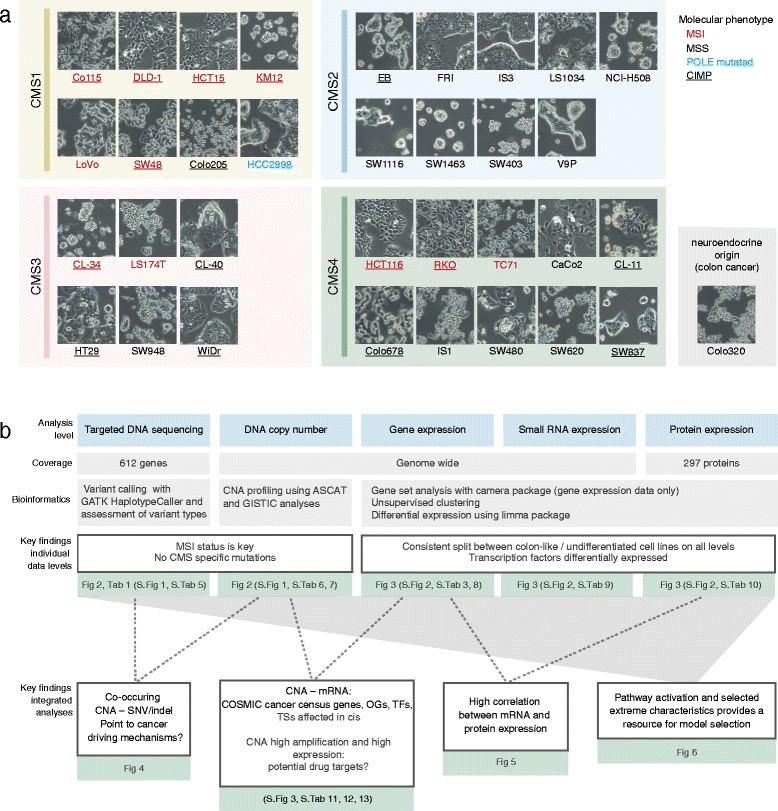
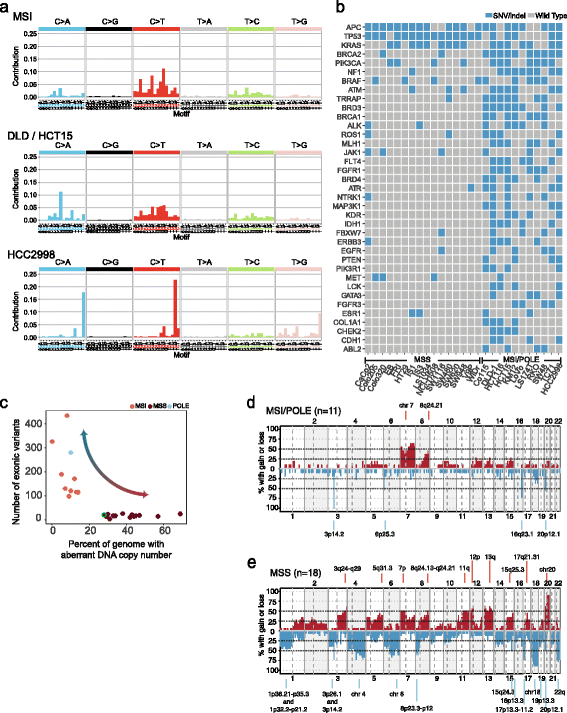
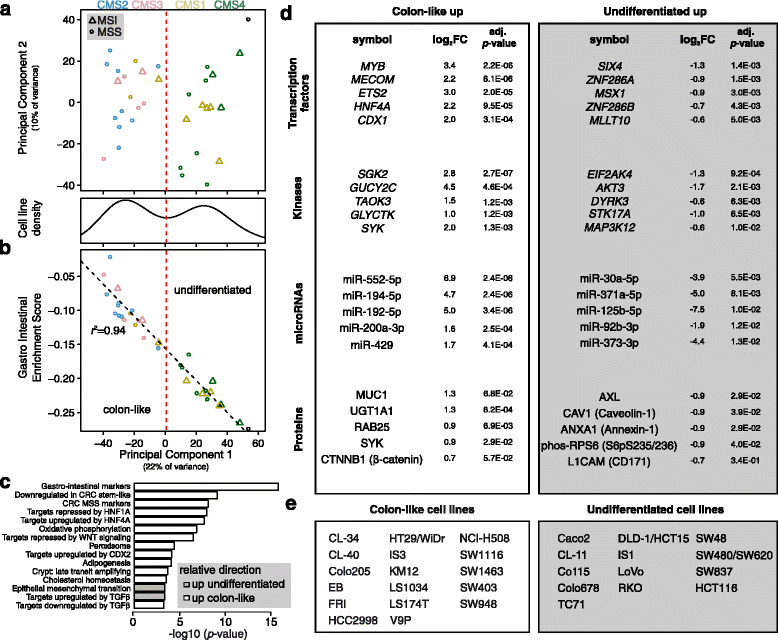
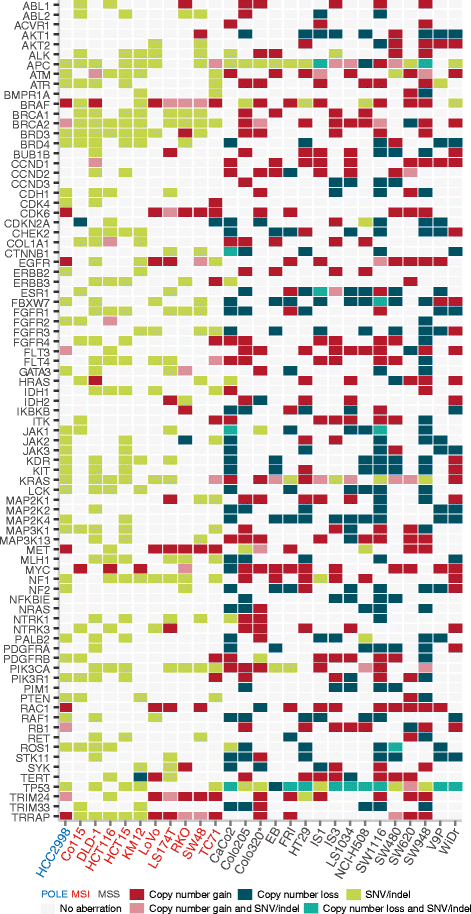
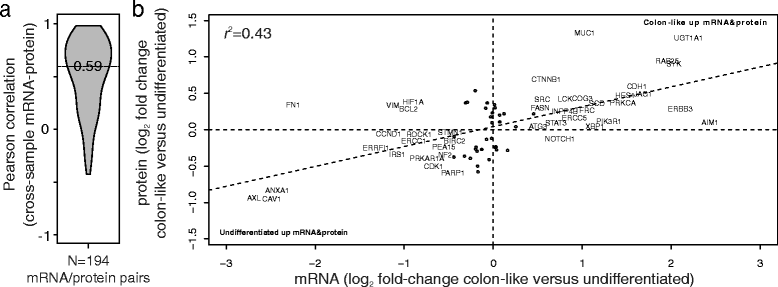
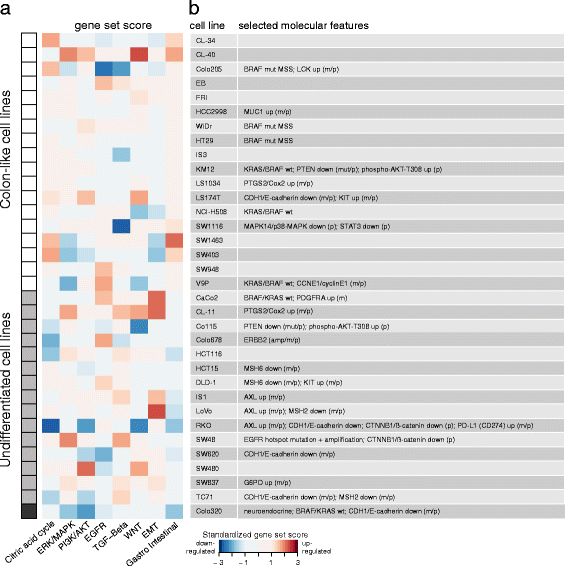
References
Publication types
MeSH terms
Substances
Grants and funding
LinkOut - more resources
Full Text Sources
Other Literature Sources
Medical
Molecular Biology Databases
Research Materials
Miscellaneous

